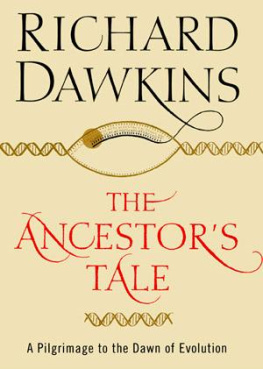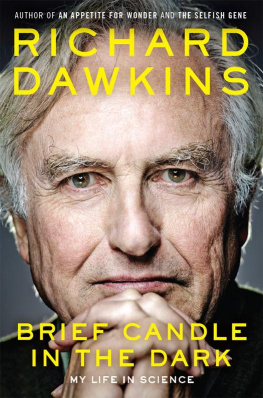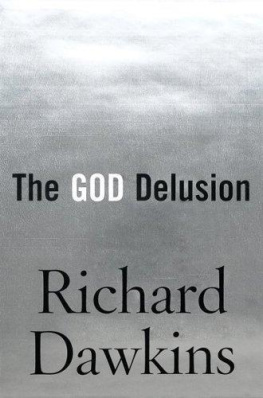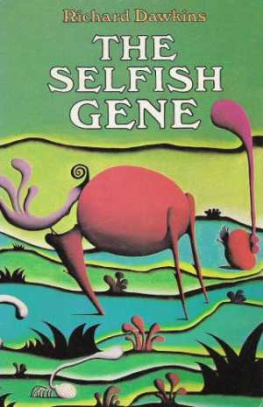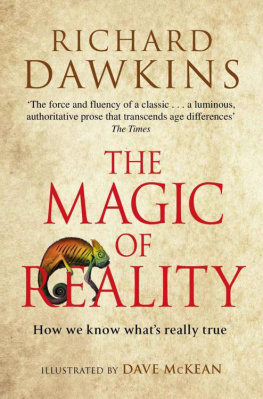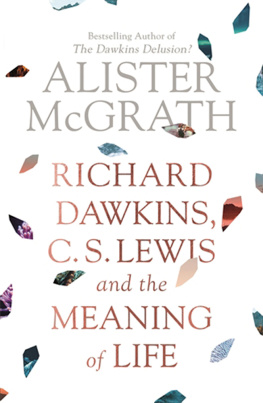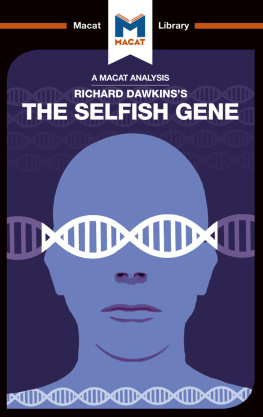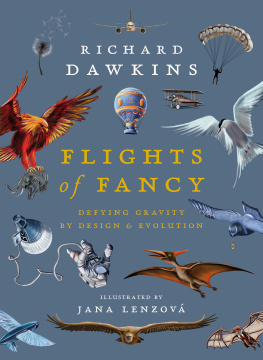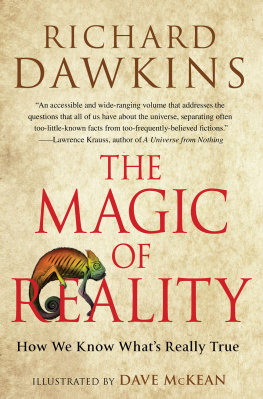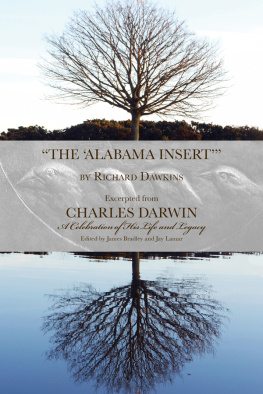Richard Dawkins - The Ancestors Tale: A Pilgrimage to the Dawn of Evolution
Here you can read online Richard Dawkins - The Ancestors Tale: A Pilgrimage to the Dawn of Evolution full text of the book (entire story) in english for free. Download pdf and epub, get meaning, cover and reviews about this ebook. year: 2004, publisher: Houghton Mifflin Harcourt, genre: Romance novel. Description of the work, (preface) as well as reviews are available. Best literature library LitArk.com created for fans of good reading and offers a wide selection of genres:
Romance novel
Science fiction
Adventure
Detective
Science
History
Home and family
Prose
Art
Politics
Computer
Non-fiction
Religion
Business
Children
Humor
Choose a favorite category and find really read worthwhile books. Enjoy immersion in the world of imagination, feel the emotions of the characters or learn something new for yourself, make an fascinating discovery.
- Book:The Ancestors Tale: A Pilgrimage to the Dawn of Evolution
- Author:
- Publisher:Houghton Mifflin Harcourt
- Genre:
- Year:2004
- Rating:4 / 5
- Favourites:Add to favourites
- Your mark:
- 80
- 1
- 2
- 3
- 4
- 5
The Ancestors Tale: A Pilgrimage to the Dawn of Evolution: summary, description and annotation
We offer to read an annotation, description, summary or preface (depends on what the author of the book "The Ancestors Tale: A Pilgrimage to the Dawn of Evolution" wrote himself). If you haven't found the necessary information about the book — write in the comments, we will try to find it.
The Ancestors Tale: A Pilgrimage to the Dawn of Evolution — read online for free the complete book (whole text) full work
Below is the text of the book, divided by pages. System saving the place of the last page read, allows you to conveniently read the book "The Ancestors Tale: A Pilgrimage to the Dawn of Evolution" online for free, without having to search again every time where you left off. Put a bookmark, and you can go to the page where you finished reading at any time.
Font size:
Interval:
Bookmark:
THE ANCESTOR'S TALE
A PILGRIMAGE TO
THE DAWN OF LIFE
R ICHARD D AWKINS
with additional research by Y AN W ONG
WEIDENFELD & NICOLSON

John Maynard Smith (1920-2004)
He saw a draft and graciously accepted the dedication,
which now, sadly, must become
In Memoriam
'Never mind the lectures or the "workshops"; be Mowed to the motor coach excursions to local beauty spots; forget your fancy visual aids and radio microphones; the only thing that really matters at a conference is that John Maynard Smith must be in residence and there must be a spacious, convivial bar. If he can't manage the dates you have in mind, you must just reschedule the conference...He will charm and amuse the young research workers, listen to their stories, inspire them, rekindle enthusiasms that might be flagging, and send them back to their laboratories or their muddy fields, enlivened and invigorated, eager to try out the new ideas he has generously shared with them.'
It isn't only conferences that will never be the same again.
A CKNOWLEDGEMENTS
I was persuaded to write this book by Anthony Cheetham, founder of Orion Books. The fact that he had moved on before the book was published reflects my unconscionable delay in finishing it. Michael Dover tolerated that delay with humour and fortitude, and always encouraged me by his swift and intelligent understanding of what I was trying to do. The best of his many good decisions was to engage Latha Menon as a freelance editor. As with A Devil's Chaplain, Latha's support has been beyond all estimation. Her grasp of the big picture simultaneously with the details, her encyclopaedic knowledge, her love of science and her selfless devotion to promoting it have benefited me, and this book, in more ways than I can count. Others at the publishers helped greatly, but Jennie Condell and the designer, Ken Wilson, went beyond the call of duty.
My research assistant Yan Wong has been intimately involved at every stage of the planning, researching and writing of the book. His resourcefulness and detailed familiarity with modern biology have been matched only by his green fingers with computers. If, here, I have gratefully assumed the role of apprentice, it could be said that he was my apprentice before I was his, for I was his tutor at New College. He then did his doctorate under the supervision of Alan Grafen, once my own graduate student, so I suppose Yan could be called my grandstudent as well as my student. Apprentice or master, Yan's contribution has been so great that, for certain tales, I have insisted on adding his name as joint author. When Yan left to cycle across Patagonia, the book in its final stages benefited greatly from Sam Turvey's extraordinary knowledge of zoology and his conscientious care in deploying it.
Advice and help of various kinds were willingly given by Michael Yudkin, Mark Griffith, Steve Simpson, Angela Douglas, George McGavin, Jack Pettigrew, George Barlow, Colin Blakemore, John Mollon, Henry Bennet-Clark, Robin Elisabeth Cornwell, Lindell Bromham, Mark Sutton, Bethia Thomas, Eliza Howlett, Tom Kemp, Malgosia Nowak-Kemp, Richard Fortey, Derek Siveter, Alex Freeman, Nicky Warren, A. V. Grimstone, Alan Cooper, and especially Christine DeBlase-Ballstadt. Others are acknowledged in the Notes at the end.
I am deeply grateful to Mark Ridley and Peter Holland, who were engaged by the publishers as critical readers and gave me exactly the right kind of advice. The routine authorial claim of responsibility for the remaining shortcomings is more than usually necessary in my case.
As always, I gratefully acknowledge the imaginative generosity of Charles Simonyi. And my wife, Lalla Ward, has once again been my help and strength.
RICHARD DAWKINS
TABLE OF CONTENTS
THE CONCEIT OF HINDSIGHT
'History doesn't repeat itself, but it rhymes.'
MARK TWAIN
'History repeats itself; that's one of the things that's wrong with history.'
CLARENCE DARROW
History has been described as one damn thing after another. The remark can be seen as a warning against a pair of temptations but, duly warned, I shall cautiously flirt with both. First, the historian is tempted to scour the past for patterns that repeat themselves; or at least, following Mark Twain, to seek reason and rhyme for everything. This appetite for pattern affronts those who insist that, as Mark Twain will also be found to have said, 'History is usually a random, messy affair', going nowhere and following no rules. The second connected temptation is the vanity of the present: of seeing the past as aimed at our own time, as though the characters in history's play had nothing better to do with their lives than foreshadow us.
Under names that need not trouble us, these are live issues in human history and they arise with greater force, and no greater agreement, on the longer timescale of evolution. Evolutionary history can be represented as one damn species after another. But many biologists will join me in finding this an impoverished view. Look at evolution that way and you miss most of what matters. Evolution rhymes, patterns recur. And this doesn't just happen to be so. It is so for well understood reasons: Darwinian reasons mostly, for biology, unlike human history or even physics, already has its grand unifying theory, accepted by all informed practitioners, though in varying versions and interpretations. In writing evolutionary history I do not shrink from seeking patterns and principles, but I try to be careful about it.
What of the second temptation, the conceit of hindsight, the idea that the past works to deliver our particular present? The late Stephen Jay Gould rightly pointed out that a dominant icon of evolution in popular mythology, a caricature almost as ubiquitous as lemmings jumping over cliffs (and that myth is false too), is a shambling file of simian ancestors, rising progressively in the wake of the erect, striding, majestic figure of Homo sapiens sapiens : man as evolution's last word (and in this context it always is man rather than woman); man as what the whole enterprise is pointing towards; man as a magnet, drawing evolution from the past towards his eminence.
There is a physicist's version which is less obviously vainglorious and which I should mention in passing. This is the 'anthropic' notion that the very laws of physics themselves, or the fundamental constants of the universe, are a carefully tuned put-up job, calculated to bring humanity eventually into existence. It is not necessarily founded on vanity. It doesn't have to mean that the universe was deliberately made in order that we should exist. It need mean only that we are here, and we could not be in a universe that lacked the capability of producing us. As physicists have pointed out, it is no accident that we see stars in our sky, for stars are a necessary part of any universe capable of generating us. Again, this does not imply that stars exist in order to make us. It is just that without stars there would be no atoms heavier than lithium in the periodic table, and a chemistry of only three elements is too impoverished to support life. Seeing is the kind of activity that can go on only in the kind of universe where what you see are stars.
But there is a little more that needs to be said. Granted the trivial fact that our presence requires physical laws and constants capable of producing us, the existence of such potent ground rules may still seem tantalisingly improbable. Depending upon their assumptions, physicists may reckon that the set of possible universes vastly outnumbers that subset whose laws and constants allowed physics to mature, via stars into chemistry and via planets into biology. To some, this means that the laws and constants must have been deliberately premeditated from the start (although it baffles me why anybody regards this as an explanation for anything, given that the problem so swiftly regresses to the larger one of explaining the existence of the equally fine-tuned and improbable Premeditator).
Font size:
Interval:
Bookmark:
Similar books «The Ancestors Tale: A Pilgrimage to the Dawn of Evolution»
Look at similar books to The Ancestors Tale: A Pilgrimage to the Dawn of Evolution. We have selected literature similar in name and meaning in the hope of providing readers with more options to find new, interesting, not yet read works.
Discussion, reviews of the book The Ancestors Tale: A Pilgrimage to the Dawn of Evolution and just readers' own opinions. Leave your comments, write what you think about the work, its meaning or the main characters. Specify what exactly you liked and what you didn't like, and why you think so.

